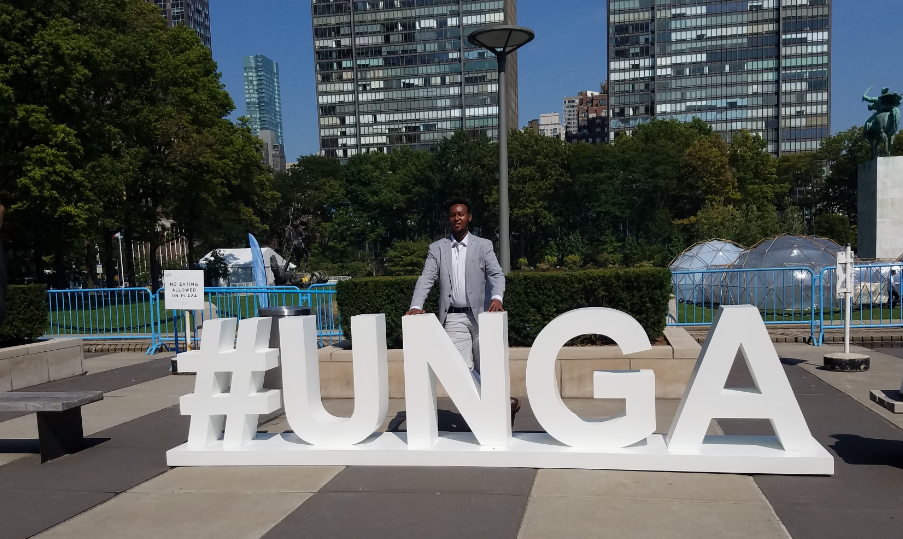Patient Champion Spotlight: Abdi Hussien

During the 74th United Nations General Assembly (UNGA) in New York City, Global Health Council provided several patient champions with the opportunity to share their stories, and contribute to discussions around universal health coverage (UHC). Following the week’s events, we sat down with each patient champion to get their thoughts on UNGA. Hear from our patient champion Abdi Hussein on his key takeaways from the week, including how he will continue to champion UHC in local community.
Tell us a little about yourself?
My name is Abdi Hussein. I’m a community health advocate working with Global to Local, a Seattle, WA-based nonprofit organization that adapts global health strategies to improve patient wellness in the United States. I help Somali refugees and immigrants in South King County- Seattle, WA residents connect with local resources, including primary care, improving their health through nutrition classes and physical fitness training and building community leadership, especially among young people through advocacy.
I was born in Somalia but fled the 1991 violence in my home country at the age of six and lived in the Dadaab refugee camp in Kenya for 20 years. Being one of the few students allowed to study outside of the refugee camp after high school, I earned my bachelor’s degree in Social Work from the University of Nairobi, Kenya. After serving as a social worker in Dadaab refugee camp for 7 years, I got resettled to the United States as a refugee in 2016.
Why is universal health coverage (UHC) important?
The health beneficial effect of UHC is well documented. One recent study of statistical trends from 153 countries published in The Lancet, found that broader health coverage generally leads to better access to necessary care and improved population health, with the largest gains accruing to poorer people. These findings are borne out by recent experiences in scaling up service coverage with financial risk protection in countries with markedly different income levels.
Also a number of countries have seen tangible economic benefits for households resulting from the introduction of UHC and the reduction of out of pocket expenditures.
Describe one of your favorite events or one-on-one conversations during UNGA, and why?
The Turning the Tables: Patient Perspectives on UHC event was my favorite. This event gave me a platform to voice my experience as a former patient and now an advocate regarding the dire need of UHC for people who cannot afford the ever rising cost of out of pocket healthcare.
We know this was your first time at UNGA. Did anything surprise you?
I was surprised by the sheer determination of the participants in the pursuit to make UHC-no one left behind campaign a reality.
What were some of the main recommendations or insights that you provided on panels or discussions?
In any event I attended, I emphasized that Sustainable Development Goals (SDG) cannot be realized until the Sustainable Development Goal 1 of eradicating poverty is addressed, because I know a lot of people who don’t have food and clean water.
How do you plan to continue or relay these global conversations back home?
I have already started an advocacy campaign with other advocates back home who are working under very difficult circumstances to stand up for the vulnerable people among us and the environment.
What are your top three takeaways from the week?
My top takeaways of #UNGA74 are:
- The unanimous agreement of UHC by the UN member states
- The private sector engagement in the financing of SDG
- And the Climate-summit